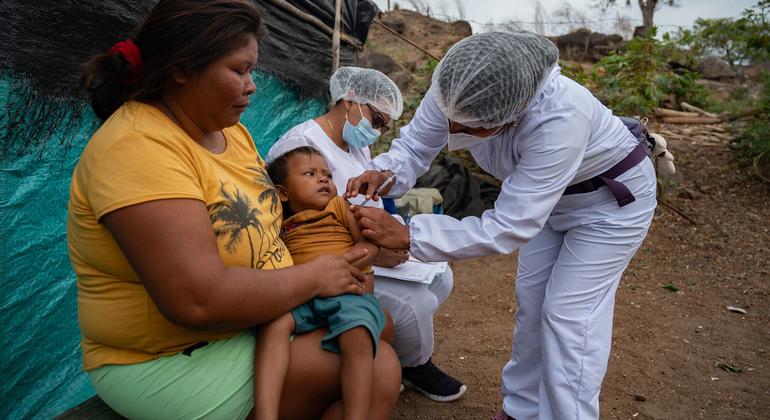The health of a person depends as much on his or her social environment as well as the medical attention the new system that it receives, as evidenced by the new Global report on the social determinants of equity in healthpublished by the World Health Organization (WHO).
The study stresses that living conditions, such as education, housing, employment and social protection, can reduce the risk of poverty. healthy life expectancy up to 33 years between different countries.
This panorama of profound inequalities is not new, but the alarming thing is that the goals set in 2008 by the WHO to improve the health equity The targets for 2040 are today at risk of not being met.
The data show that the gaps in infant and maternal mortality remain enormous, especially in low- and middle-income countries, which still account for 941 PT3T of all maternal deaths worldwide.
"Our world is an unequal world. Where we are born, grow up, live, work and age significantly influences our health and well-being," acknowledged Dr. Tedros Adhanom Ghebreyesus, WHO Director-General.
However, there is room for improvement and the WHO report illustrates the importance of addressing the interrelated social determinants and provides evidence-based strategies and policy recommendations to help countries improve health outcomes for all, he said.
In response to this, the organization offers a roadmap to transform this reality. The WHO proposes four main lines of action to attack the structural causes of health inequalities:
- Invest in universal public services: Expanding social protection, ensuring decent education and employment, and guaranteeing basic services can improve health outcomes for millions of people. Currently, 3.8 billion people lack this minimum coverage.
- Combat structural discrimination: Inequities are exacerbated in marginalized communities such as Indigenous Peoples, where life expectancy is significantly lower. The report calls for the eradication of discriminatory practices and the generation of inclusive policies, with a gender and diversity focus.
- Addressing the effects of climate change and conflict: Poverty generated by the climate crisis and forced displacement threatens to worsen global health. It is estimated that between 68 and 135 million people will fall into extreme poverty as a result over the next five years.
- Strengthen participatory governance: Governments, academia, civil society and the private sector must work together, empowering communities and allocating resources where they can generate the greatest impact.
In these collective actionsIn order to achieve these objectives, national and local governments, health leaders, academia, research and civil society must work together.
Source: WHO


